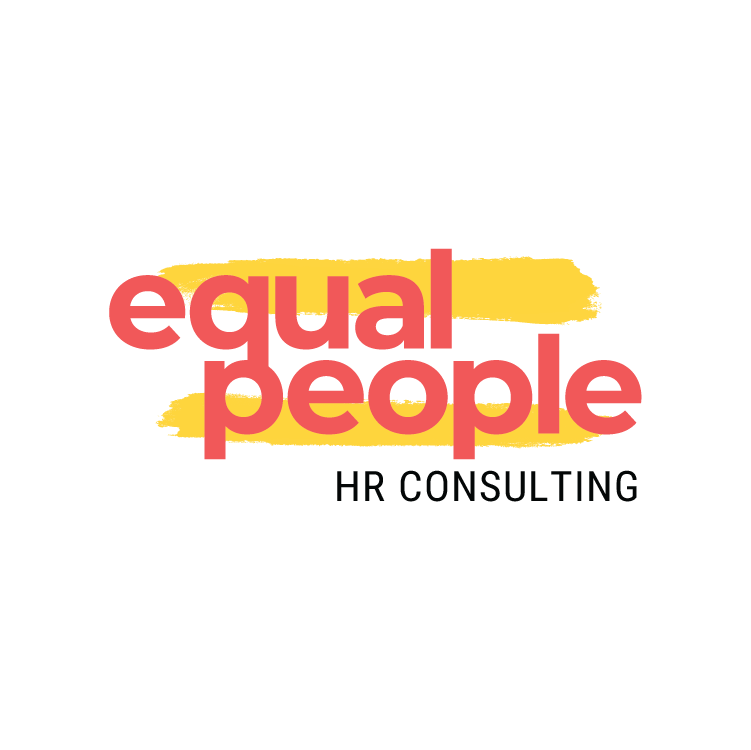5 Common HR Mistakes (and how to avoid them)
Running a small business requires many tough decisions to find the right balance needed to keep things going in the right direction. It can be tough to know where to focus your energy, time, and money… you can't do EVERYTHING (even though we may try.) That's why it's important to focus on the areas that bring the most value and impact to your team.
Having worked alongside small business owners who are trying to bring huge impact to their team while keeping their day-to-day operations running smoothly, I'm going to share with you the top 5 mistakes small businesses make and how to avoid them so you can make sure you're compliant, you have a strong workplace culture, and you're driving results (not just going through the motions).
These are 5 common HR mistakes small business make (and how to avoid them):
1.Out of date policies.
Not reviewing your HR policies to make sure they are up to date with current employment legislation and match their current business practices is a common mistake with smaller businesses. Too often, what I typically see are policies that haven't been written down or they haven't been touched in years... The problem with this is that when you actually need to enforce it (aka. You have an employee who isn't following the rules or when an employee is looking for how to do it the right way), the policy actually doesn't match what the company does in practice. This loses trust and leaves your team in a state of confusion.
2.Lack of leadership support.
Many times, decisions are made at the ownership or executive level and when they are rolled out to the rest of the team, our front-line managers haven't been given adequate training and resources to prepare them to handle the questions or concerns that come their way. This leads to confusion and a lack of buy in for the team (ever roll something out and no one is following it?...) and frustration from your leaders.
We can write everything down, but if our front line managers don't have the capacity to deal with the situations that come up then what good is it?
3.No feedback systems.
A common mistake small businesses make is not having a feedback system in place to communicate expectations, coach performance, and build relationships. I often hear things like:
"We talk every day so we don't need a formal meeting."
"We don't have time for 1:1 meetings…"
The thing is, when you don't make intentional time then your employee is stuck in a place where they aren't sure if it's the right time to bring up challenges or ideas. The lack of communication allows assumptions to run wild which leads to conflict on our team. Feedback systems allow the opportunity for simple conversations to solve potentially big issues down the road.
4.Lack of documentation.
You know what they say, if it isn't written down then it didn't happen.
Relationships in small businesses are often started on a handshake but what happens when your relationship shifts? Typically employees and employers go into an employment relationship with the best of intentions however when things go south, your HR experts and lawyers are going to rely on your documentation: signed employment contracts, documented conversations, written policies and procedures.
Without those, you’re vulnerable. Good intentions won’t protect you in a dispute — your paperwork will.
5.Avoiding tough conversations.
This is a BIG one - the most common reoccurring mistake I see small businesses make is avoiding tough conversations with their employees. And let me tell you, it makes it so much worse! We avoid the uncomfortable conversations because:
we don't know how to deal with it
we're scared of making it worse
we're not sure what exactly to say
we don't want it to start an argument
We hope it will go away on it's own or we say we will get to it later but the reality is that it ends up with higher turnover, more toxic work environments, and more stress for your management team.
Want to avoid these? Yeah, I would, too! Here are some things you can do:
Complete an HR audit of your core values, policies, and practices. This will help you understand where you want to be (your north star) and will help identify gaps in your business. From there, you can start to form your HR strategy moving forward.
Invest in training and mentoring your managers. Whether you do group training or 1:1 coaching, making sure your managers are prepared for what comes their way is a main driver of the overall success of your team. Afterall, they are the primary source of information for the rest of your team.
Develop a structured process for communication with your employees. This includes informal conversation and formal disciplinary conversations. Making these consistent helps create clear expectations and makes the process easier for you and your employee.
⭐ At Equal People HR, our HR on Retainer services support small and medium businesses by:
Unlimited phone and email support
Customized HR business strategy sessions
HR project support, including development and rollout
Templates, communication strategies, and training
Looking for support with a one-time project? No problem! We can jump in to get it off the ground.
Let's chat! Email us at hello@equalpeople.ca or give us a call at 250-575-3949.
